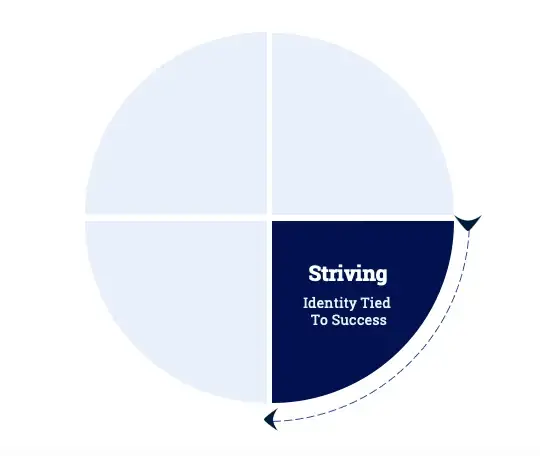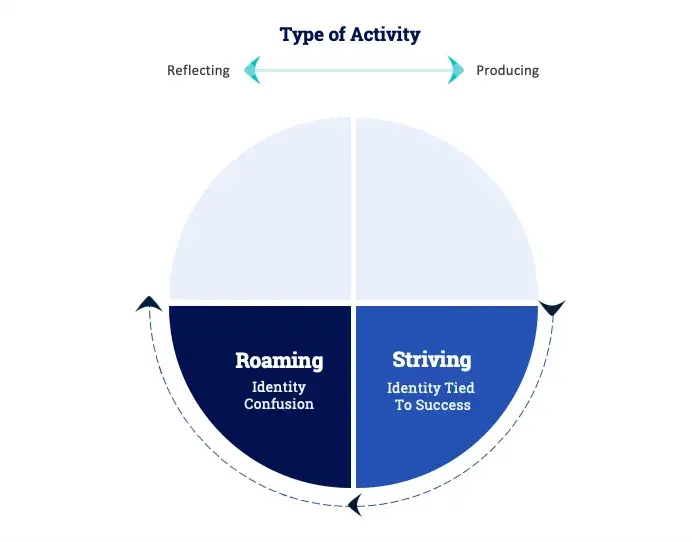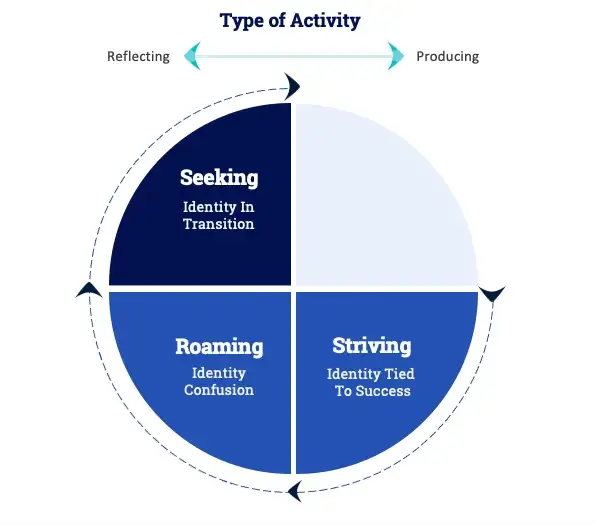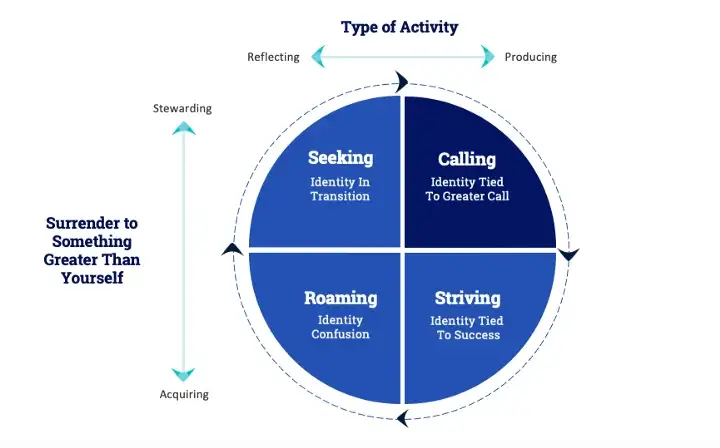Written by John Carbrey.
Our Awakening
I had always thought, like almost every entrepreneur, that selling my company would be a triumphant moment — the pinnacle of my achievements. But when it finally happened, instead of feeling fulfilled and overjoyed, I felt empty, lost, and bewildered with confusion over the meaning of my life and work.
I couldn’t share these feelings with my friends and peers. “Cry me a river,” I expected to hear back. In trying to understand why I felt the way I did, I started searching for similar stories about other post-exit founders. Not the polished and often fictionalized stories, but the real stories that delve into the emotional experience.
There was little to be found, but in my search, I remember being shocked by a quote from one entrepreneur: “Selling my business and taking home $100M was the worst decision I ever made,” he said. I was floored. How could this be? He wrote that over the 30 years he built his business, his identity, community, and friends were all tied to his business. When he sold it, he received more money than he could want or need, but he lost his identity and community, and his daily friendships were significantly severed.
Drinking The Kool-Aid
It took me more than 20 years to learn what a terrible trade this was. I remember speaking with the head of a leading startup accelerator here in Canada about how to train aspiring entrepreneurs. I stopped her in her tracks when I said, “The most important lesson you can teach these aspiring entrepreneurs is not to sell their soul to their business.” I got a blank stare in return. That was the opposite of their curriculum.
I’ve seen this story play out again and again in my own story and with friends who one by one have exited their businesses, reaching a goal they thought would be the pinnacle, but realizing instead it was an illusion. A state of post-exit confusion sets in, and the questions we had been avoiding our whole lives come back to roost — Why? Why am I doing what I’m doing? What impact do I want to have with this short fleeting life? What really matters?
In an industry saturated with hustle porn, tech entrepreneurs can easily fall into a pattern of striving tirelessly to succeed without ever reflecting on the purpose of their work. They feel that as long as their business is successful, everything in their life will fall into place. This might seem true for some, but for most others — myself included — business success only presents new challenges.
“I think everybody should get rich and famous and do everything they ever dreamed of so they can see that it’s not the answer.” Jim Carrey
In order to endure, it’s crucial to understand what is motivating you to succeed, and, if that motivation is unhealthy, to shift it to something that will sustain and stabilize you in the inevitable moments of struggle and doubt.
Below I’ll outline how, over time, my mindset shifted from striving to calling. My hope is that it can inspire others to make this shift right now, rather than waiting until they’re “done” entrepreneurship or their striving for success.
Striving
In my first years as an entrepreneur, working 100-hour weeks was the norm. I would sleep on the floor of my office, skip meals, and be on call 24/7. I was striving to survive and be successful, though I didn’t really know what success meant.
I know now that the thing I was striving for was my father’s affirmation. I wanted to make him proud. Many of you might be motivated by something, or someone, in a similar way. You’re striving for validation, or acceptance, or even vindication. What these motivations have in common is that they’re all inherently unstable, and self-centred.
I was rudely awakened from my striving mentality by what appeared to be the imminent destruction of the company I’d built from nothing to thousands of customers over more than a decade. A group of hackers around the world attacked our education platform with a series of 20 or more distributed denial of service attacks. These attacks were so significant that at one point top-level telcos in Canada had to turn off our platform to protect their networks from being taken down. Our platform served around 5,000 schools across North America. Every phone in our office was ringing with school administrators who were screaming at us over the phone, either cancelling or threatening to cancel their subscriptions, and it was estimated that fully restoring and mounting the defences to protect the platform could take up to six months.
I felt the attack both physically and psychologically. I felt like I had been brutally beaten and left for dead.
Roaming
After seeing me stuck in bed, unable to move, my wife suggested I see a therapist.
In my first session, I started with my existential question: “What’s the point of all of this? Is it just to make money and then donate it?” I asked my therapist, whom I spent six years with (resisting the urge to strive is a lifelong journey). I was doing what I thought I was supposed to. I was hustling, I was striving. But what was I striving towards?
I came to realize that my identity had been fused with my business. As my business was failing, my identity was collapsing.
If my work had any meaning, I needed to find it now or risk my company, or myself, imploding. Unhealthy motivations can be corrosive not just internally but throughout your organization and stakeholders.
Seeking
The attacks eventually subsided and we were able to limit the impact of these attacks. But I was changed through that crucible.
Reflecting on my past and the unhealthy striving I now could see, I resolved that in the next phase of my life I wanted something more — something beyond striving.
During a sabbatical I took not long after, I invested a lot of time to reflect on the meaning of my work, and how I wanted to spend the rest of my life.
These are probing questions, and they require attention intellectually, emotionally, and spiritually. These questions go deep into your worldview, your perspective on life.
I define a worldview as answering four questions:
- Origin — Where do we come from?
- Meaning — What gives life meaning?
- Morality — What is a good life?
- Destiny — What happens after we die?
Each of us, even if we haven’t thought deeply about these questions, is operating with a worldview, and it is like a set of glasses that helps us see and interpret the world.
A key part of my sabbatical was reassessing my worldview, which had been deeply challenged. I spent time studying various religions and philosophies and spent a month in Oxford exploring these questions.
Given the context of my evolving worldview, I considered what a good life was, what inspired me, what gave me joy, how I felt spiritually, and how my work could serve a higher purpose.
Calling
I came out of this time of seeking realizing that who I was becoming and the moral ecology I created in my spheres of influence was something that could outlive any specific venture. With this in mind, I had two convictions that shifted my focus about my vocation from striving to calling, and eventually led me to start FutureSight.
First, I realized looking back on my years of company building how passionate I was about being a catalyst for the growth of entrepreneurial leaders. Seeing how the members of my team, a mix of senior executives and people that had joined me straight out of school, had grown into strong entrepreneurial leaders over the years was the most rewarding part of my journey.
Second, I realized that when entrepreneurial leaders are values-driven, they have the capacity to make a uniquely positive impact on the world with the businesses they build. (The opposite is true as well. When leaders do not have strong values, they have the capacity to cause great harm.)
Mercenaries vs. Missionaries
Another way to explain this difference between striving and calling is with a mercenaries vs. missionaries frame — a distinction popularized by VC John Doerr.
“Mercenaries are driven by paranoia; missionaries are driven by passion; mercenaries think opportunistically; missionaries think strategically,” said Doerr. “Mercenaries go for the sprint; missionaries go for the marathon. Mercenaries focus on their competitors and financial statements; missionaries focus on their customers and value statements. Mercenaries are bosses of wolf packs; missionaries are mentors or coaches of teams. Mercenaries worry about entitlements; missionaries are obsessed with making a contribution. Mercenaries are motivated by the lust for making money; missionaries, while recognizing the importance of money, are fundamentally driven by the desire to make meaning.”
A Calling Unique To You
Everyone can have a unique calling. Some leaders have a moment of epiphany and others have a growing sense of calling throughout their life. So don’t put immense pressure on yourself to “find it”. Often the calling will need to find you.
This calling will be rooted in your worldview and could be anchored in a belief about what the world needs, a social cause, a moral philosophy, or even a spiritual encounter. Whatever it is, it needs to be other-centred versus self-centred, you need to believe in it, and you must care deeply about it. It needs to affect your heart as much as or more than it affects your mind.
Many people have changed the world through pursuing a calling, but there are two people that stood out for me.
The Calling of William Wilberforce
The first is William Wilberforce, the British politician who led the movement to abolish slavery in the U.K. in the 1800s. What initially led Wilberforce to Parliament and drove him in his political career wasn’t fighting for justice or equality, it was striving. “I did nothing to any good purpose,” he said, “My own distinction was my object.” He could have continued down this path, potentially seeking higher office, but that need for attention and external validation wouldn’t have sustained him in his mission to end the slave trade. Abolition took decades, and Wilberforce was hated throughout England and physically attacked by slave traders. He needed his work to be driven by a calling, which for him became the liberty of the oppressed. Reorienting himself enabled him to accomplish something that didn’t appear possible.
“So enormous, so dreadful, so irremediable did the Trade’s wickedness appear that my own mind was completely made up for Abolition,” Wilberforce told the House of Commons in 1787. “Let the consequences be what they would, I from this time determined that I would never rest until I had effected its abolition.”
It took fifty highly uncertain years, with a growing coalition of participants, to accomplish this massive project, and the Slavery Abolition Act was passed in 1833; Willberforce, released from the weight of his calling, died a few days later.
The Calling of Aleksandr Solzhenitsyn
My second example only understood his calling in hindsight. Aleksandr Solzhenitsyn, Nobel Prize-winning author of the Gulag Archipelago, was so driven to record the horrors he experienced in Soviet Union labour camps that he risked his and his family’s lives and diligently committed thousands of lines to memory amid hunger and exhaustion. He shut out of his mind the possibility of his work being published in his lifetime and was driven instead by a duty to tell the stories of the millions who had suffered alongside him. He didn’t know his book would be read by tens of millions of people across the world and play a part in the fall of the Soviet Union.
“I felt as though I was about to fill a space in the world that was meant for me and had long awaited me,” he said, “A mold, as it were, made for me alone, but discerned by me only this very moment. I was a molten substance, impatient, invariably impatient, to pour into my mould, to fill it full, without air bubbles or crack, before I cooled and stiffened.”
So callings come in many forms. They can be clear from the outset or obscured for decades up until the point that they’re fulfilled. Also, they are unique to each person. While you can’t choose exactly when and how yours forms, you can attempt to understand the meaning behind your work through awareness. I’m convinced that we grow at the pace of reflection.
Questions for My Younger Self
If I could coach my younger self on this journey, I would offer him these questions:
- What practices of reflection do you have?
- Who are your heroes? Who do you want to be like when you grow up?
- What is more important? What you are building, or who you are becoming?
- What is motivating you? Who told you that was important?
- What does a good life look like? Why do you think that is the case?
- What do you want in life? Why? Who convinced you that was important?
- What do you want to leave as your legacy?
- What are your values? How does that make you different from the people around you?
- What behaviours will allow you to live your values in work, your family life, etc.?
Rather than requiring crucible experiences to force me to face these questions, I could have begun the transition from striving to calling much earlier if I had considered these questions when I was younger.
From Striving To Calling
Surrender
Ultimately, our movement from striving to calling is dependent on our willingness to surrender to something greater than ourselves. To have the scales drop from our eyes and discover the mimetic illusion of our first desires. And from there, to grow into a deeper, bolder, and more noble calling for the benefit of others. These “I was made for this” moments are a form of worship.
This truth was captured well by the late David Foster Wallace:
“Because here’s something else that’s weird but true: in the day-to-day trenches of adult life, there is actually no such thing as atheism. There is no such thing as not worshipping. Everybody worships. The only choice we get is what to worship.”
Transformation Towards Joy
The path of calling is more challenging and will require all the skills and capabilities and self-knowledge you have gained in the previous stages. But in the end, you are a different kind of person.
Here are just a few of the transitions that can occur as you grow into your calling:
- From anxiety in self-reliance to peace in a stable identity
- From distress in the storm to rest in the storm
- From temporal gratification to creating a legacy
- From the death grip of control to wisdom and courage
- From fleeting happiness of success to joy in the journey
The greatest reward on this path from Striving to Calling is that rather than mere happiness, we can arrive at a place of deep joy.
Miroslav Volf, a professor at Yale, has made studying joy his specialty, and he concludes that joy is the crown of a well-lived life:
“Joy is not merely external to the good life, a mint leaf on the cake’s whipped cream. Rather, the good life expresses and manifests itself in joy. Joy is the emotional dimension of life that goes well, and that is led well.”
I am coaching a group of entrepreneurs who are looking to grow their impact and move from striving to calling. If you would be interested in becoming a member, apply here.






